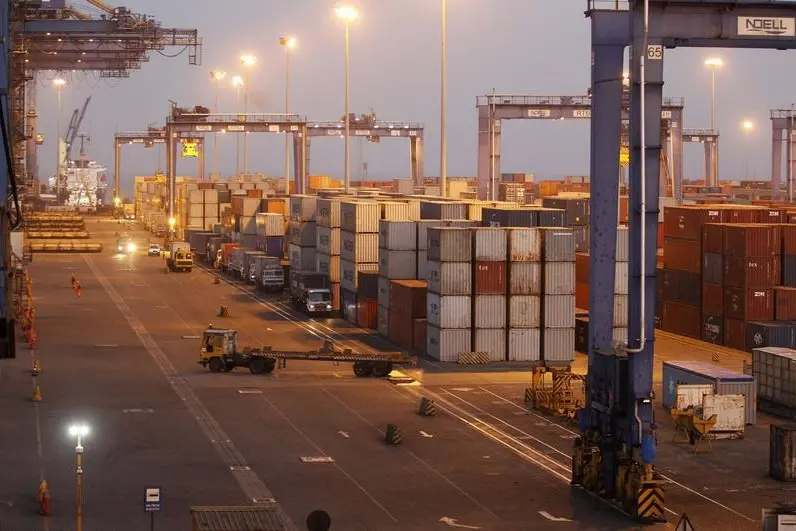PHOTO
India's ambassador to the United Arab Emirates has called on the latter country's private sector to make greater investments into the South-Asian republic.
In a keynote address to Global Commodity Outlook Conference in Dubai on Sunday, Navdeep Suri, Ambassador of India to the UAE, said that there has been “an asymmetry in our investment relationship - that India is a capital-poor country and UAE is a capital-rich country, and yet much of the flow has been the other way around”.
“Now, there's lots to blame on what happened in India, there's a lot to commend on what happened in the UAE,” Suri told the conference, referring to market conditions in both nations.
However, Suri pointed to India’s rapid recent rise through the World Bank's Ease of Doing Business index – up to 77th in the 2019 rankings published last October, from 142nd in 2014 - as evidence that the country had changed.
He also brushed off potential concerns over the impact of this year's elections, which are due to take place between April and May.
“Since 1991 when we started our economic reforms, we've had six governments, and since 1991 our year-on-year average growth rate has been 6.7 percent of GDP,” Suri said. “There might be a teeny occasional hiccup somewhere, but the trend line is reasonably clear.”
Suri said that India's GDP is likely to hit $2.9 trillion this year, “which means we will have overtaken both Great Britain and France in dollar terms and be the fifth-largest economy in the world”.
He said that large-scale investments in India have been made by UAE entities in recent years, pointing to the $1 billion invested by Abu Dhabi Investment Authority into the National Infrastructure Investment Fund (NIIF) and a commitment to invest in a $3 billion ports and logistics fund by
Dubai’s DP World, alongside the large-scale investment both by Abu Dhabi National Oil Company and Saudi Aramco into the $44 billion Ratnagiri petrochemicals refineryon India’s west coast.
Suri also said that although Emaar Properties “initially had had a fairly negative experience in India”, it is now looking at plans to invest in an India-UAE food corridor which requires cold storage and food processing facilities, as well as silos, warehouses and refrigerated trucks.
Food for thought
Currently, he said that around $2.2bln of food products are exported from India to the UAE. “The ambition is to treble this to around $7 billion,” Suri said.
“In addition to that, you have some of the big, Indian business groups - NRI-owned business groups, Indians who have been here for 30-40 years who have run very successful businesses and who are now investing significantly into hospitality, real estate, retail, healthcare, education and so on. And yet there's something missing. The missing link here is the UAE private sector,” he said.
“What about the family offices and the large private groups? Some of them are going to India, but perhaps there's still that perception that India is too hard, too complicated, too large, too diverse,” Suri said.
He said that at a 7 percent growth rate, India's economy would hit $5 trillion by 2026.
“Here you are in this city which takes big, bold decisions - creates Burj Khalifa, brings in smart governance, moves to blockchain - and yet is somehow lagging behind in a country that should be its natural backyard,” Suri said. “I can't think of any place on the planet that is better positioned to take advantage of the India growth story than Dubai is,” he said, arguing that Dubai could be to India what Hong Kong has been to China's recent growth story.
More new deals
In an earlier address to the conference, the UAE's Undersecretary for Foreign Trade and Industry at the Ministry of Economy, Abdullah Ahmed Al Saleh, also stressed the importance of UAE-India trade relations.
“The bilateral trade relation has matured and transformed into a comprehensive strategic partnership as both countries continue to explore deeper cooperation in new areas,” Al Saleh said, stating that the two countries had signed more than 12 MoUs and agreements within the past three years.
These include a currency swap agreement which began in December, and discussions over “the possibility of linking our respective e-platforms for the benefit and welfare of Indian workers coming to the UAE”, Al Saleh said.
He said that trade volumes between the two nations now stands at $57 billion, and that there had been “a flurry of investments” from UAE companies into India last year.
https://www.zawya.com/mena/en/business/story/UAEIndia_bilateral_trade_to_exceed_US100bln_by_2020_says_UAE_Minister-WAM20190119141056375/
“The UAE is the 10th largest investor in India for foreign direct investment, with investments of $5.3 billion,” Al Saleh said.
“Today, India stands as the UAE's largest trading partner and the UAE is India's third-largest trading partner after the United States and China. As part of our diversification strategy, we have been exploring avenues for investment and trading, and India is on our radar,” he added.
We firmly believe there are synergies for cooperation between us and with the attractive investment climate, I am confident that the UAE businesses will be keen to explore more opportunities.”
The Global Commodity Outlook Conference was organised by Richcomm Global Services in conjunction with Dubai Multi Commodities Centre and Dubai Gold and Commodities Exchange.
(Reporting by Michael Fahy; Editing by Mily Chakrabarty)
Our Standards: The Thomson Reuters Trust Principles
Disclaimer: This article is provided for informational purposes only. The content does not provide tax, legal or investment advice or opinion regarding the suitability, value or profitability of any particular security, portfolio or investment strategy. Read our full disclaimer policy here.
© ZAWYA 2019




















